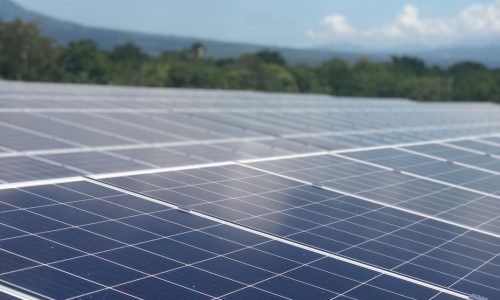It is no surprise that as an archipelagic country, Indonesia exports maritime products, especially fisheries. Indonesia is one of the players in the tuna industry and ranked in the top 10 global exporters of the commodity. Not only does the country export the tuna as is, but also the processed one in the form of canned tuna.
That being said, the government of Indonesia is currently looking for investors for the fish canning industry in Sorong Special Economic Zone, West Papua. Not only to boost the export of the downstream products of the fisheries but also to develop the region which is subsequently still behind compared to other areas in the country.
The proposed project is worth around IDR 1.67 trillion with an internal rate of return of 27.58%. Moreover, the projected payback period is at 6.7 years. On paper, the project seems to be fairly promising. But the catch is, the production system is based on orders, meaning that the factory does not always produce 100%. This could either bring good or bad news as it may cut costs for the production utilities while also keeping the profit short should there be little or no orders at all.
Economic zone to house various industries
The proposed area for the canning industry is in Sorong SEZ, which to this day is still underdeveloped. But according to its master plan, the area will be around 523.7 hectares with various sectors allocated for the big and small industrial zone, asphalt industry, Petrochina, bulk cement industries, and public facilities as well as office complexes.
The area will also be fairly accessible as there are 2 ports, a seaport and a ferry port. Though the SEZ itself is still fairly underdeveloped, there are already a couple of roads, mainly national roads and a national strategic road that connects to the area as well as an airport.
Although the government is planning to develop a fish canning industry, the main goal for Sorong SEZ is to develop the industry of nickel manufacturing, crude palm oil processing, regional infrastructure provider, and forestry industries as well as logistics for plantations.
West Papua itself is the top 5 fisheries producer in Indonesia with a total production of 8,545 tons. So opening the fish canning industry seems to be the right move. Based on the data from the government, it is concluded that fish export is not affected by the Covid-19 pandemic, meaning it is a fairly resilient industry.
Papua supplies tuna to US, EU
Moreover, based on the data, although the top export maritime commodity is shrimp at 37.56% worth around US$ 466.24 million, the tuna and skipjack export managed to score at second place with 14.23% of total export worth around IDR 176.63 million. Most of the exports go to the US, followed by China and ASEAN countries, and then Japan, and the European Union.
The main product of this project will be brine canned tuna and soya canned tuna. The planned capacity is projected to be at 100 tons/day. Though it mainly produces canned products, the opening and operation of this project could also bring other opportunities for other industries such as fishbone meal factories, animal feed factories, shrimp paste factories, canned industry and salt industry which could bring other sources of income and opening up other markets for any waste products.
There are a few things that investors should put into consideration before investing in this project. First, the fact that the area is underdeveloped making distribution channels have not been established. Moreover, eight risk mitigation proposals regarding distribution channels have not yet been established. Another thing that should be considered is the possibility of earthquakes that might be followed by tsunamis as Sorong is located in the Ring of Fire. On top of that, there is a potential risk of flood, especially during high tide combined with high rainfall.










